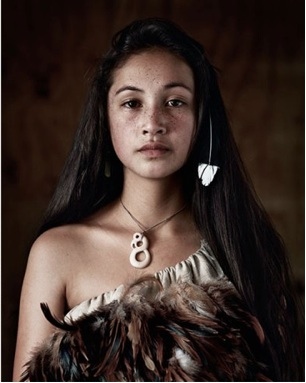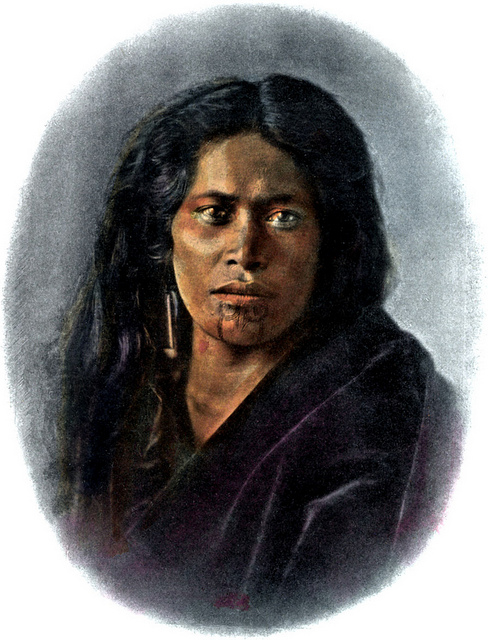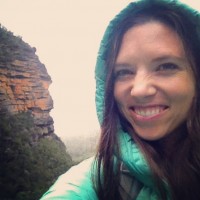Māori language week in Aotearoa (New Zealand), July 27 to August 2, is a week to celebrate a living teaching of the ancients, to see language to not just survive but revitalise and to share whatever words we can with our neighbours next door and across our earth.
My maternal side is Māori (Ngāi Tahu, Waitaha) back through my grandmother and great grandmothers. My grandmother grew up in a time of subtle segregation, when being Māori wasn’t easy. Fairer, with light eyes, she kept that part of her close to her heart and didn’t raise my mother in it. It was only later that I found out she’d quietly learnt language via radio.
So long as language exists, so does everything with it.
I grew up in Australia, yet as a child I woke up with Māori names and words hanging in the leftover space of my dreams. In the 90’s, before the ease of Google, I asked for books to be sent over.
When I was 21, my grandmother passed on to me our one-thousand-year whakapapa (genealogy). Fifty-seven generations and thousands of names hand-drawn into intricate maps. I couldn’t find words for the treasure she passed into my arms.
When I started learning te reo Māori (the Maori language) I found my way home. The language is a treasure where even one ordinary word can provide immense understanding and wisdom. After all, the extraordinary hides in the ordinary. One word has me re-evaluating who I am.
With just 13 letters in the alphabet (8 consonants and 5 vowels), all words are deeply connected to each other. Vowels are seed sounds, across lands and cultures worldwide.
Makuini Ruth Tai, who teaches on the vibration of te reo Māori explains it as the language of nature, where REO (language) stands for Rich Earth Oratory. Six years ago she opened me up to seeing reo in this way, by explaining the first two words below. The other words are some I’ve sat with, outside in the fresh air, and tried to get to know. I share what they teach me, and it’s in no way conclusive.
While I am no expert, I share to highlight our ability to find the answers within the question itself.

8 Māori words everyone should know, to have you celebrating exactly who you are:
1. Kia Ora.
Good for everything really: hi, hello, goodbye, best wishes and thank you.
When we tune into the seed of the word, Kia—to be, Ki is where something happens. Ora—alive, vital, healthy and well. When you greet with Kia Ora you’re wishing them to be vital, bright and well.
A little deeper: Ora, O —has. And Ra—the sun, the energy of light and sound.
Kia Ora—I greet the being of light and sound, vibrating their own vitality, before me. In doing so, I also thank them for their unique self.
2. Aroha.
Aroha means love (like Aloha from our sister tongue in Hawaiki).
Aro is presence and Ha is breath and the essence of breath. To be part of the breathing is to be part of the earth, trees, sky, both the space and the frame.
Looking inside the word, we gain a deeper understanding of love. Love involves our presence and breath. In breath, we exchange—we give and receive with every cell. By offering presence and a full breath, we touch our love more deeply and give fully of who we are.
3. Aroha Mai.
One of my favourite expressions in Māori, which I use constantly. Never before have I felt so good apologising for myself. Instead of the endless “sorry!” and “excuse me!” try Aroha mai (or at least this feeling).
This is the word for when we screw up, get it wrong, bump someone, forget things and other endless variations of causing havoc with another or ourselves.
Here’s what happens with your statement:
Aroha: Love (plus presence and breath).
Mai: To me; back to myself.
Akin to when we place a hand on our chest in apology, we’re really saying “love to me.” “I give love to myself in this.” We are our hardest critics and the core of healing anything begins and ends with us. We all know this. Aroha mai for when I forget.
4. Whakapapa.
Whaka is to create—to become. It comes before a word to bring it into being (a verb). Papa is earth—foundation. A nickname for the Mother, Papatuanuku.
Whakapapa is our genealogy, or lineage—literally becoming or creating with the earth, although it goes back earlier, too. Attune to your own whakapapa for a moment, even if you don’t have the information. Across one generation you have two parents; two generations back gives you four grandparents; three generations, eight great-grandparents. Continuing the line back just 15 generations, you have 65,000 great…grandparents. How wide are our relations, really? Whakapapa is what I felt when I held one thousand years of names in my hands.
Let’s not stop with people. How many generations back is our river? The ancestor of stone? Each whakapapa tells us of its place, relatives, medicine and gifts.
Through whakapapa we are not just returning, we are creating. Whakapapa is of the utmost importance. Continued through both childbirth and manaakitanga (guardianship) of the natural world.
You become a place by caring for it and receiving from it.
5. Māori.
Apparently, the collective name for Māori began at the arrival of the first colonialist ships, and in signalling themselves it meant ‘ordinary’.
Mā is bright, clean, and pure. It is used in words (like Marama and Manawa) to convey illumination—to have a revelation or sudden understanding. Ori is vibration. If we are vibrating the Mā, we are really being in truth with what is.
Māori means the essence of what humanity is capable of. Science says our minds distinguish humanity from the other aspects of nature. Māori acknowledges the potential we have to awaken.
6. Mauri.
Translated as life force—the life principle or vital essence—Mauri is in everything that lives. Ma—bright, clean, pure, and Uri—a descendant. We are a descendant unto infinity.
To wish someone well, Mauri Ora. Put simply: Be well as the descendant you are of the brightest, purest essence.
7. Manawa.
I can’t do this one (or its parts) justice in so many words, except as an entry-point to what it teaches us. Manawa in modern usage refers to heart and breath.
If we look within, we first see Mana—our power; our sovereignty through our inherent birthright. Wa is time and space. It connects us to our right power in time and space.
Ma, bright, illuminated, and Na—from, Wa—time and space. Our heart exists at the intersection of time, place, and space. Now is the moment of power. The heart contains all we seek. Both our power and our understanding resides in our heart.
8. Tamariki.
(For those with kids, who were kids or who know kids!)
All words are related. Thus, the word for child (Tamariki) carries a parenting manual within it. Here are a few aspects of the child:
Ma—bright, innocent, pure. No matter what they do, always remember the innocence, the basic goodness in a child.
Ariki—the chief. Ari—to be clear, visible. Acknowledge the chief and chieftainess that is already apparent in your child or baby. The being before you is its own. Let the ariki within them be seen and expressed as their purpose and birthright for being.
Riki—sometimes used to refer to a shoot of new growth by a plant. The child springs from the roots of which it came: the ancients, his or her ancestors and lineage. Remind your child of all that came before and of the support always available to it, seen and unseen.
Ki—used as a particle when moving towards something. Encourage movement, in all forms.
~
When we look within, whole worlds open to us. With every insight, we become aware of the vastness offering more.
Ko taku reo taku ohooho, Ko taku reo taku mapihi mauria.
“The language is my awakening, the language is the window to my soul”
~ Māori Proverb
The Māori healers share about this form of listening:
Kia rongorongo ee koe ki ngaa mau aa rongo, ki ngaa maungaarongo.
“Healing is when you are able to hear the universe sing their songs of pain and hear your own road to recovery”.
As we celebrate the revitalisation of the Māori language, let’s celebrate the revitalisation of who we each are, and have always been. Through these living qualities in us, may we embrace our own deep listening and recognise what we hear as our own voice. May the world speak to us in all we do.
Kia kaha i roto i te wiki o te reo Māori, strength to Māori language week, 2015.
~
Author: Bahadur Hāweatea Bryson
Editor: Toby Israel
Photo: 1. collection of old photos/Flickr; 2. Jimmy Nelson via Bahadur Hāweatea Bryson (© Jimmy Nelson Pictures B.V., Trade Edition book published by TeNeues)



Read 12 comments and reply